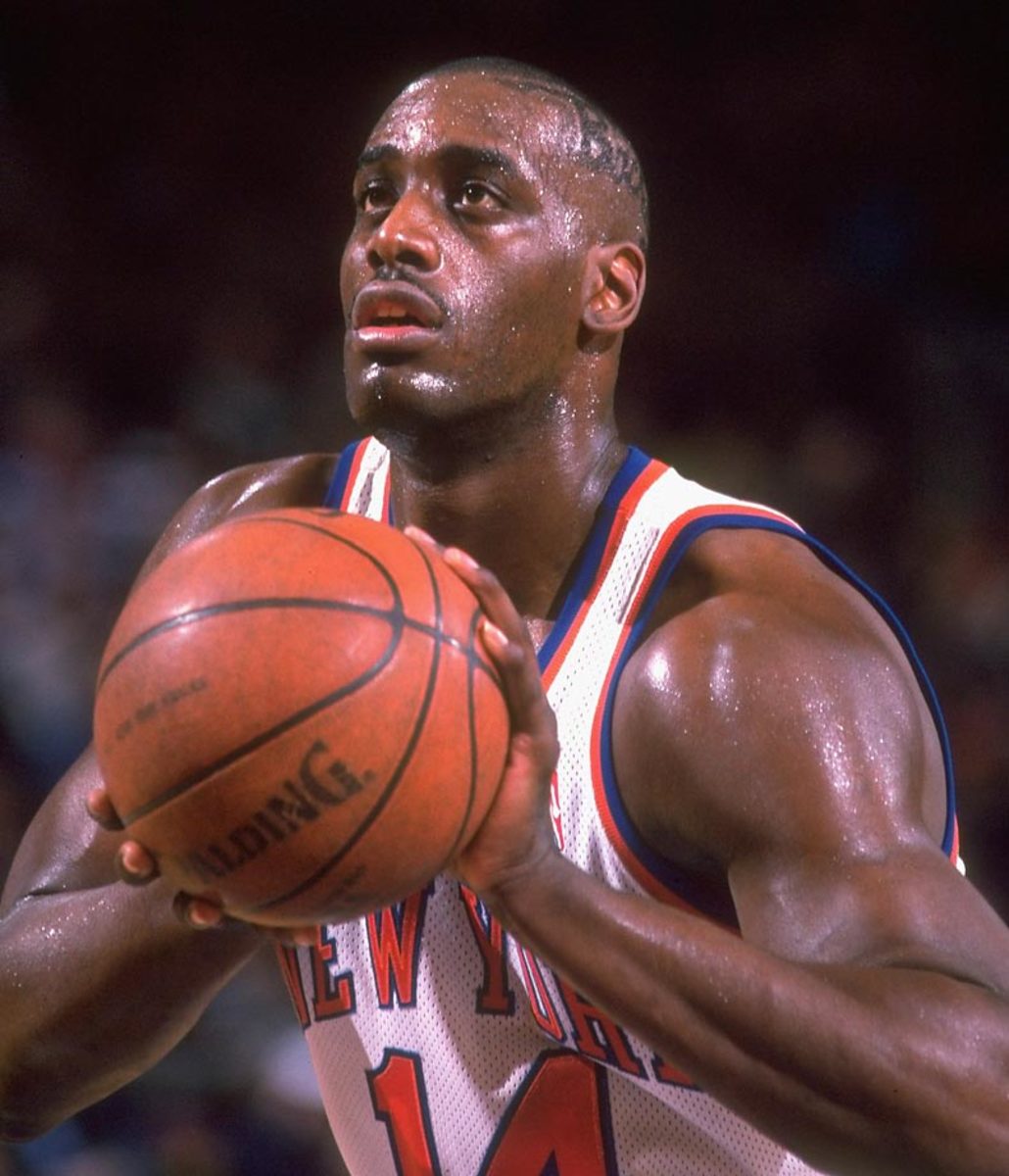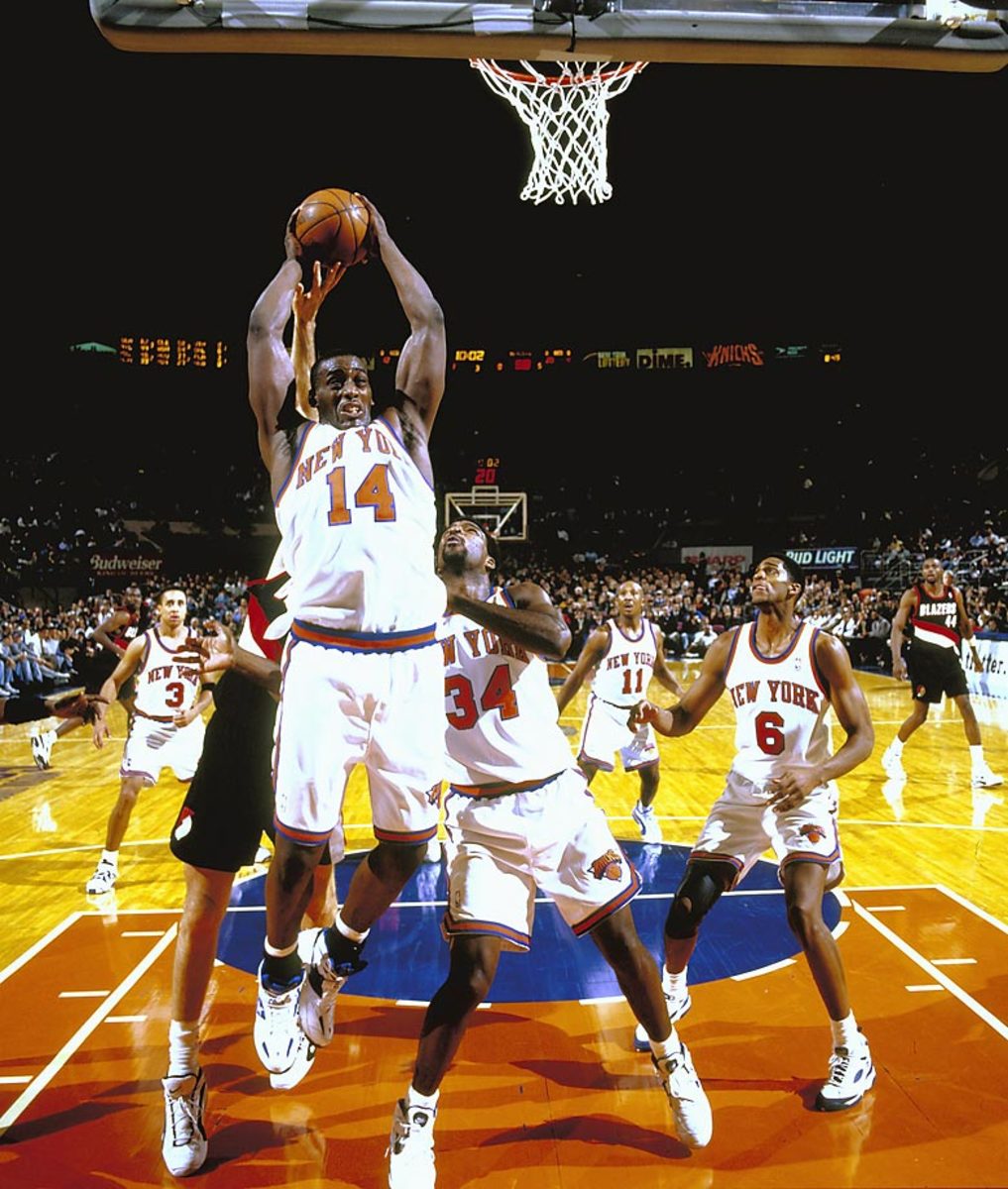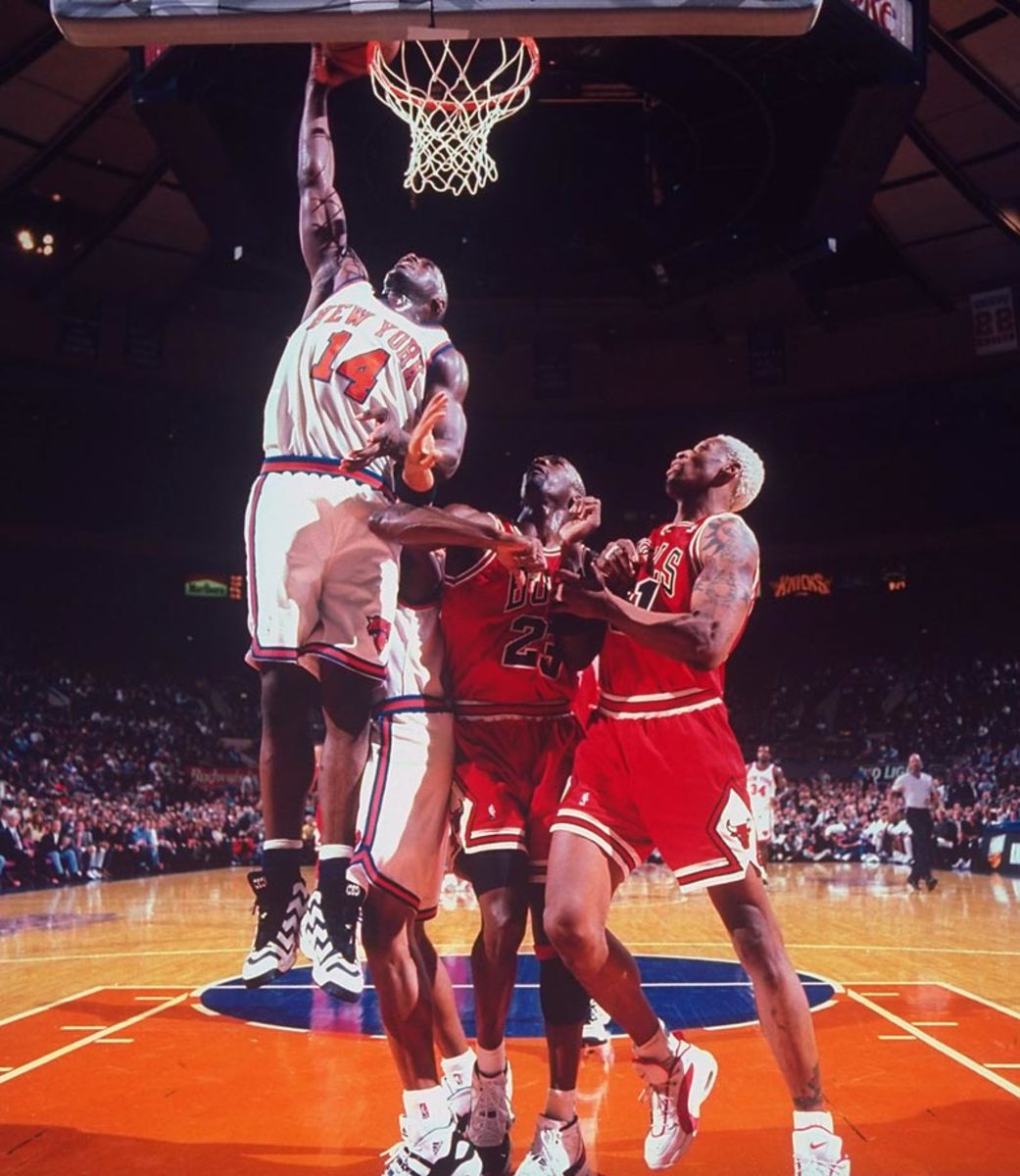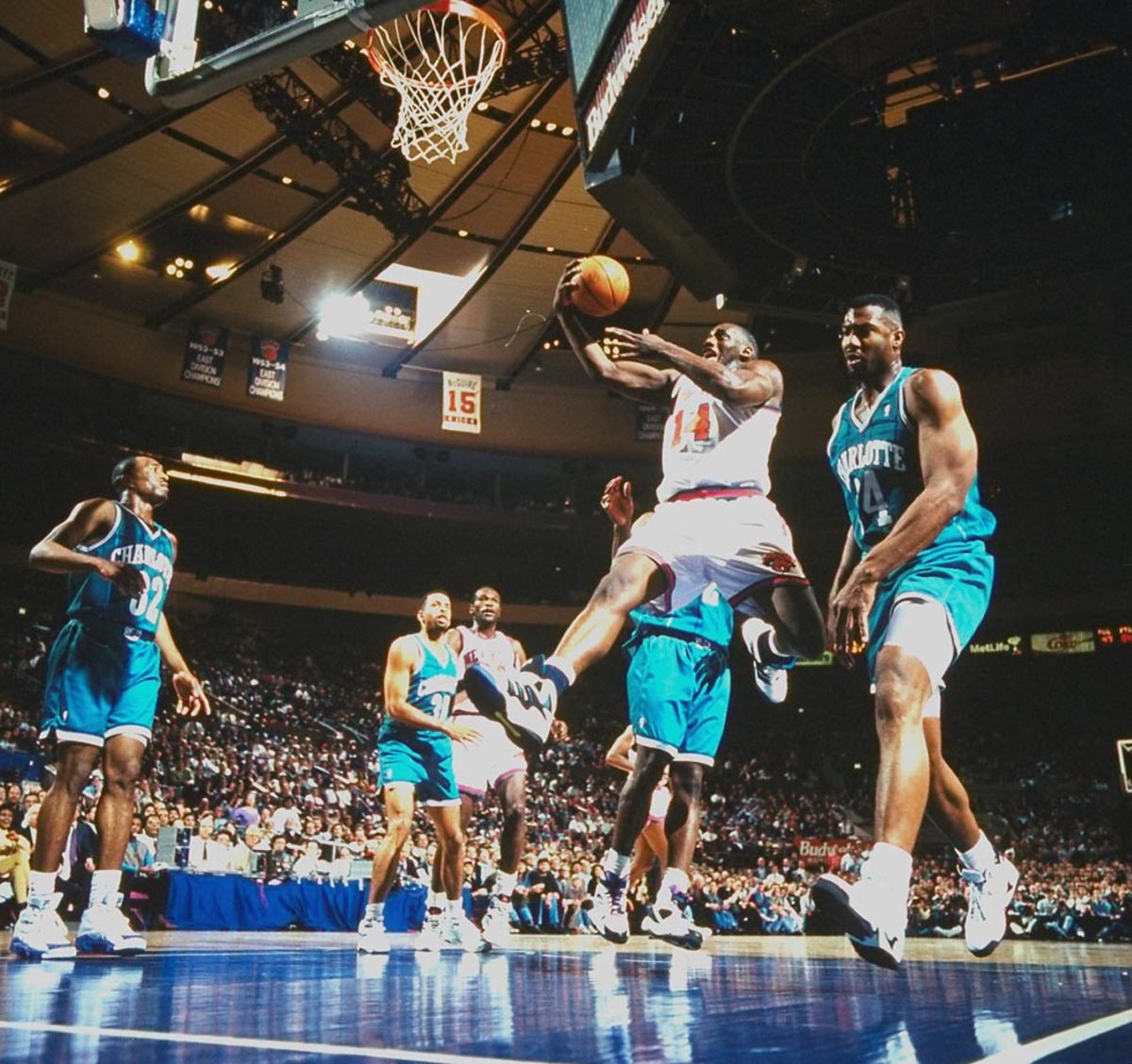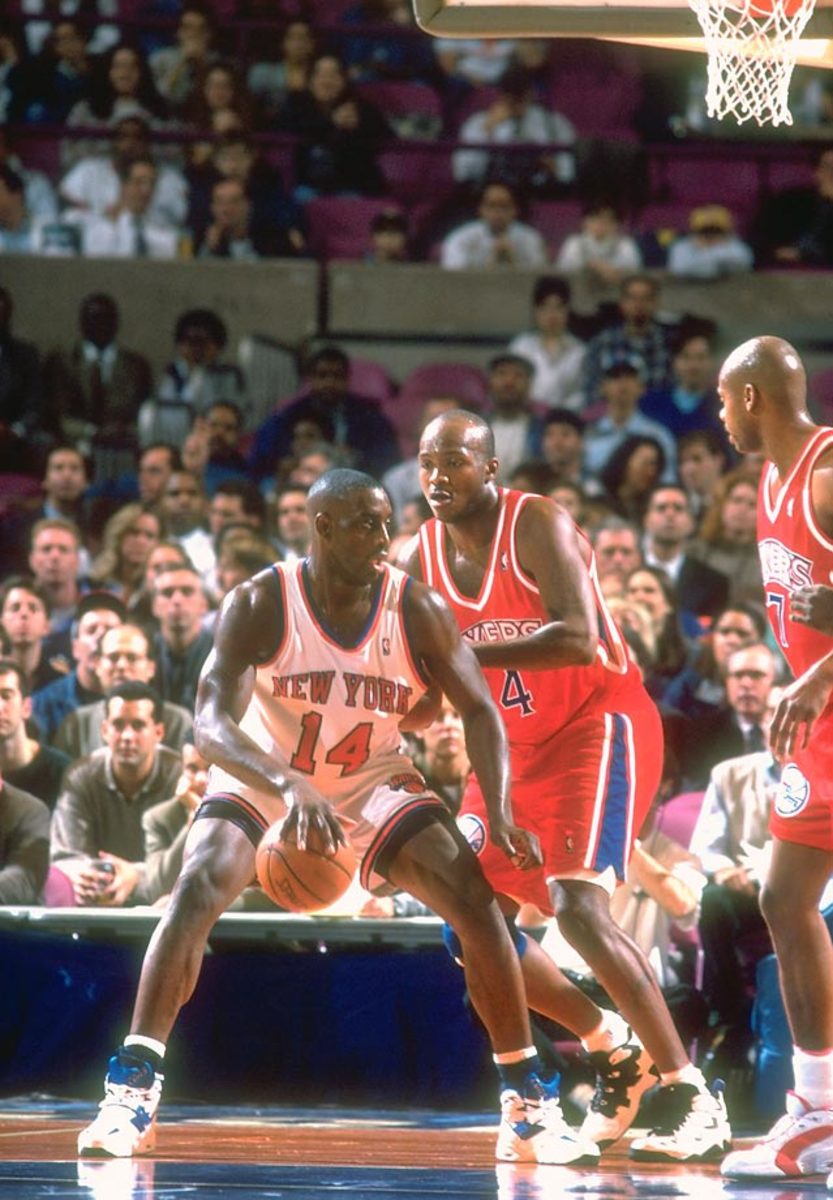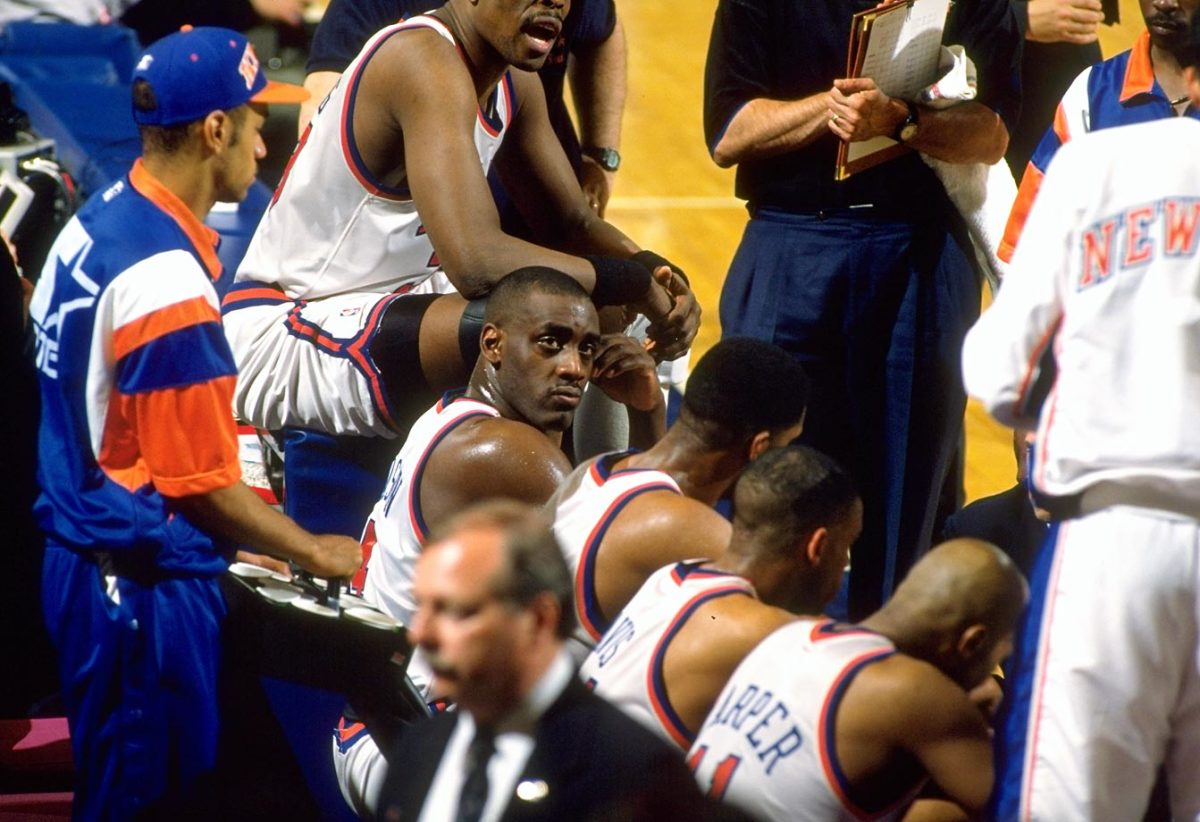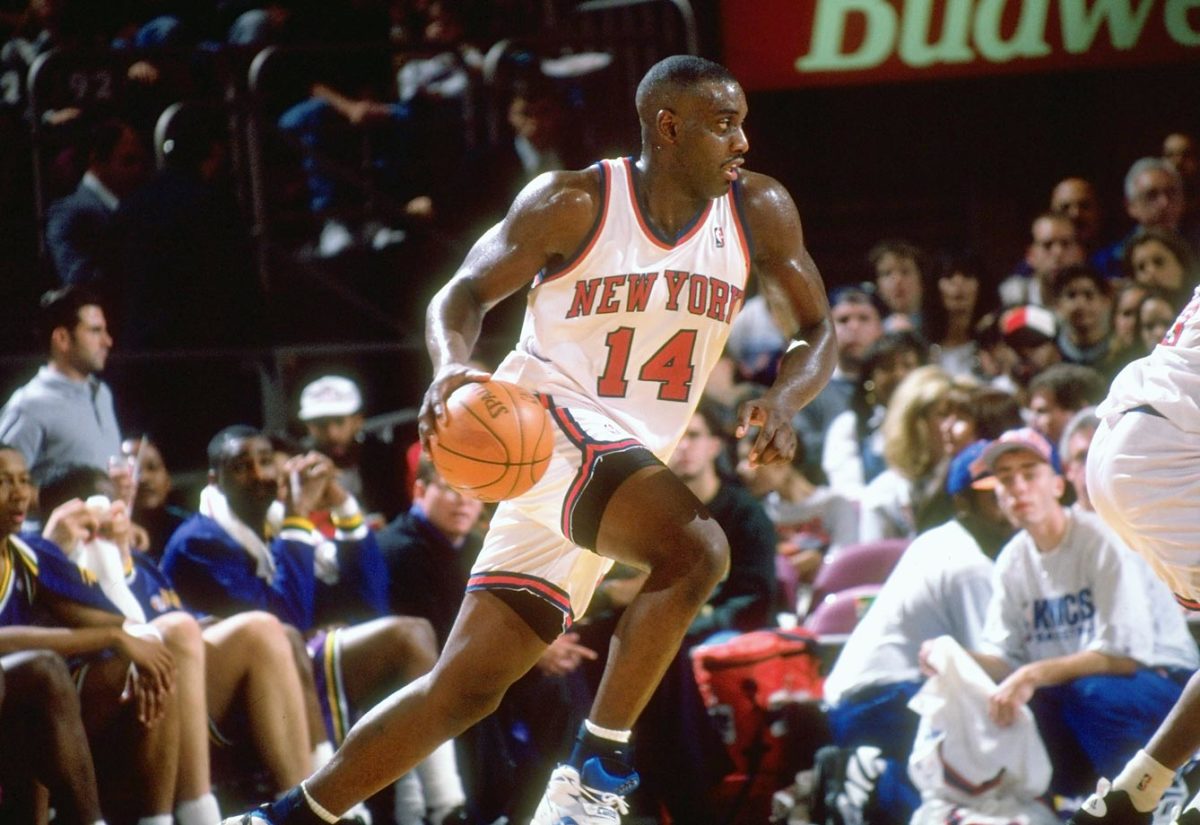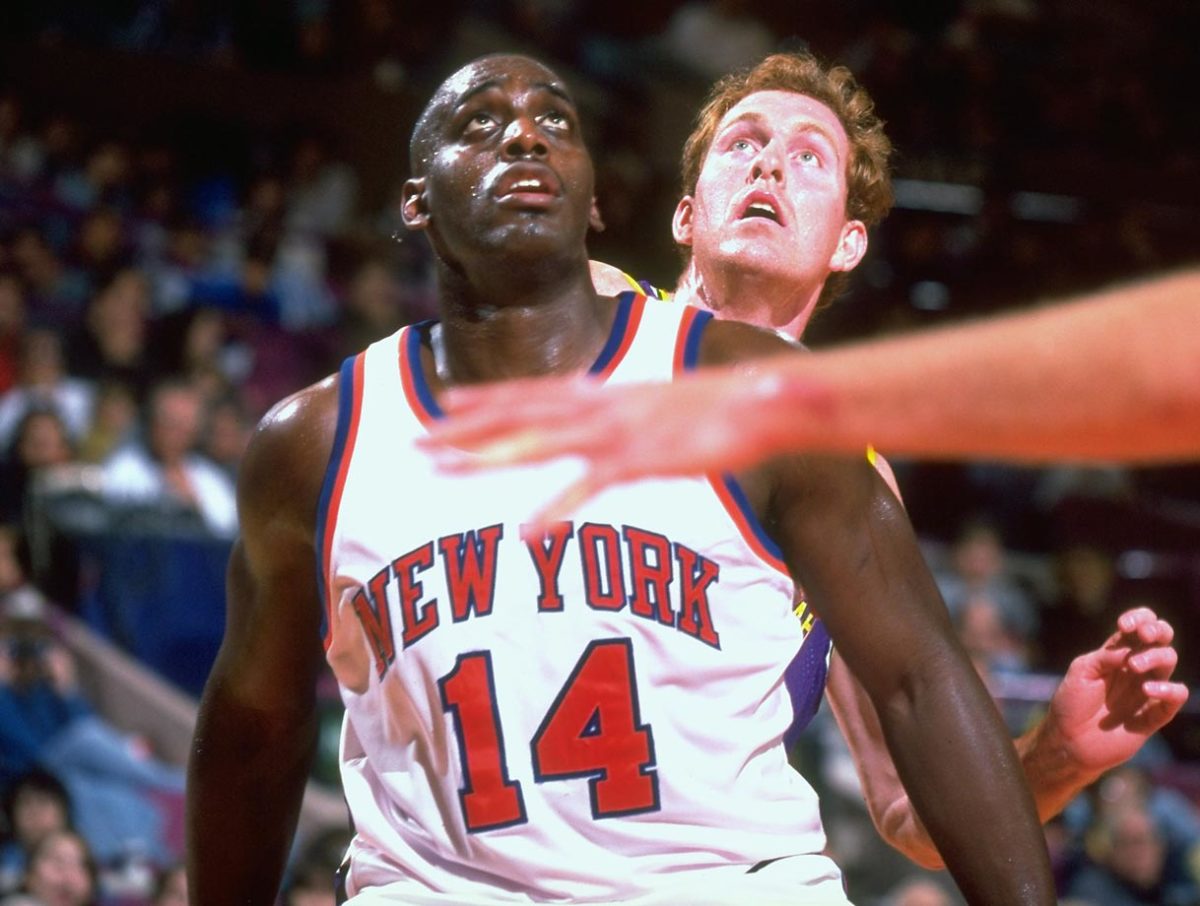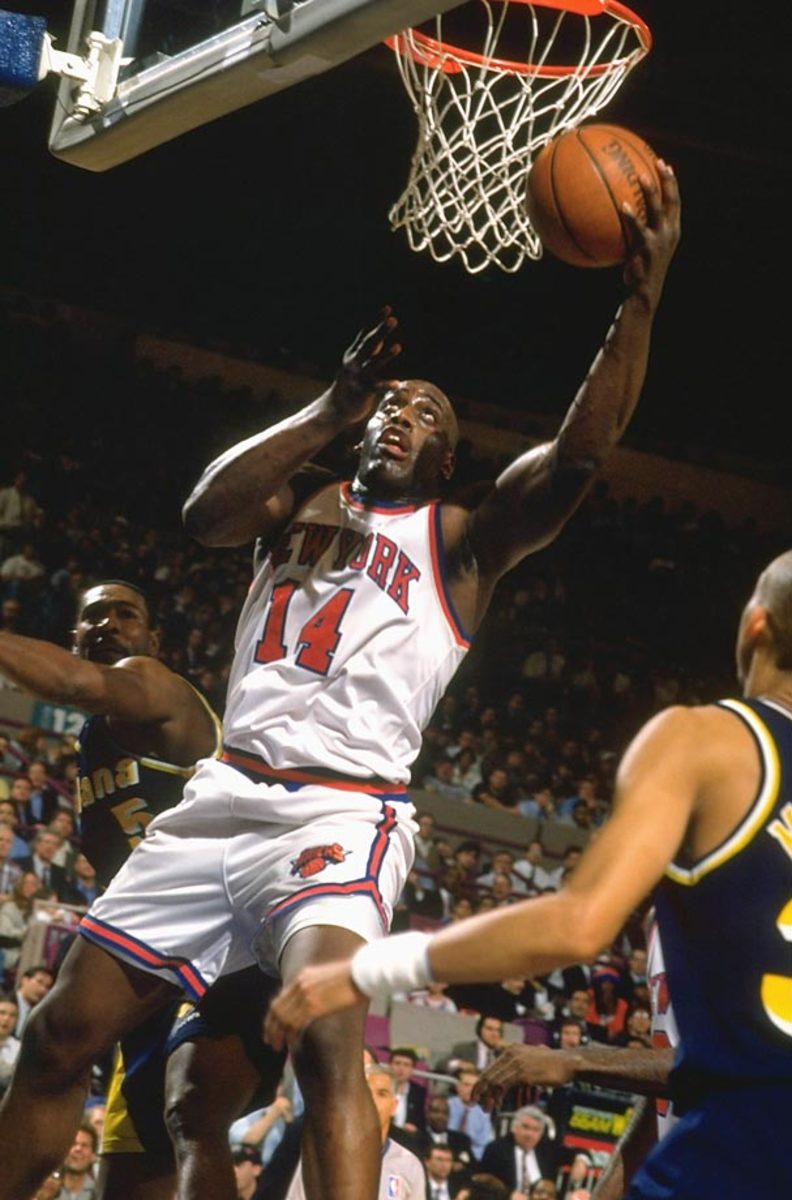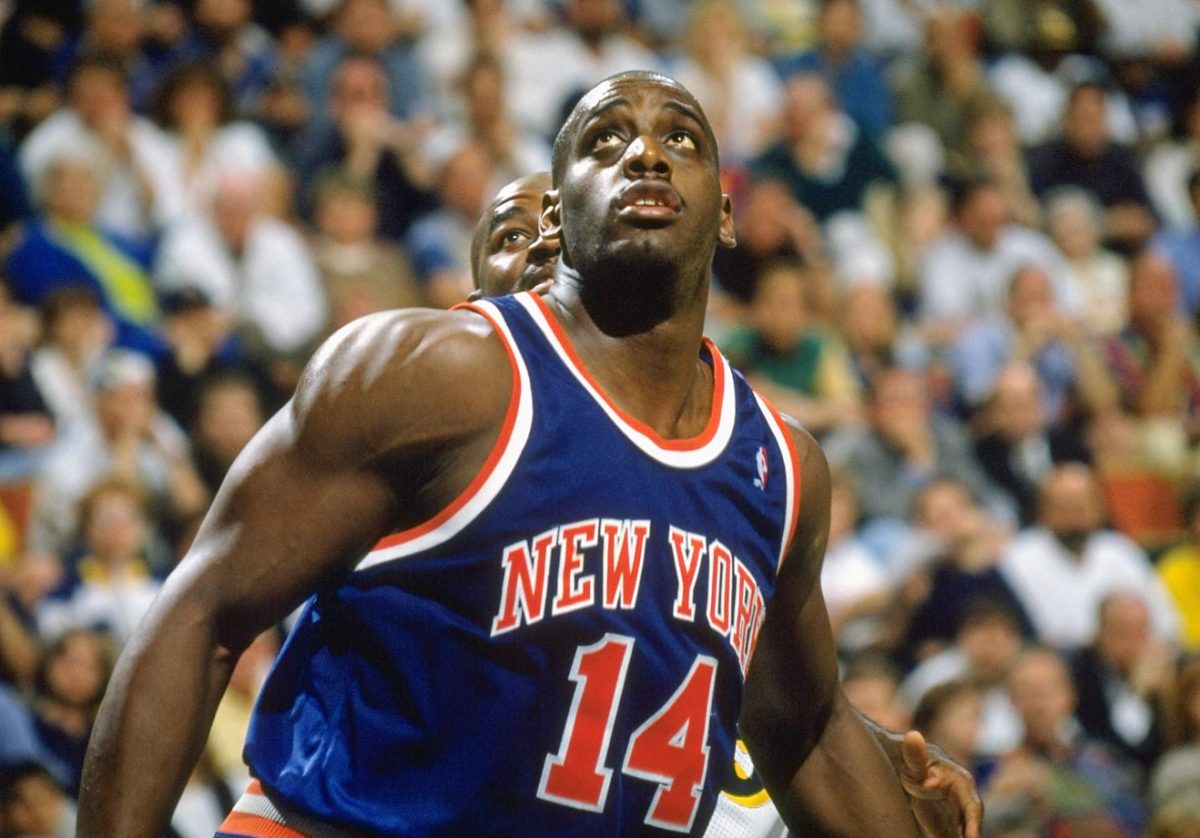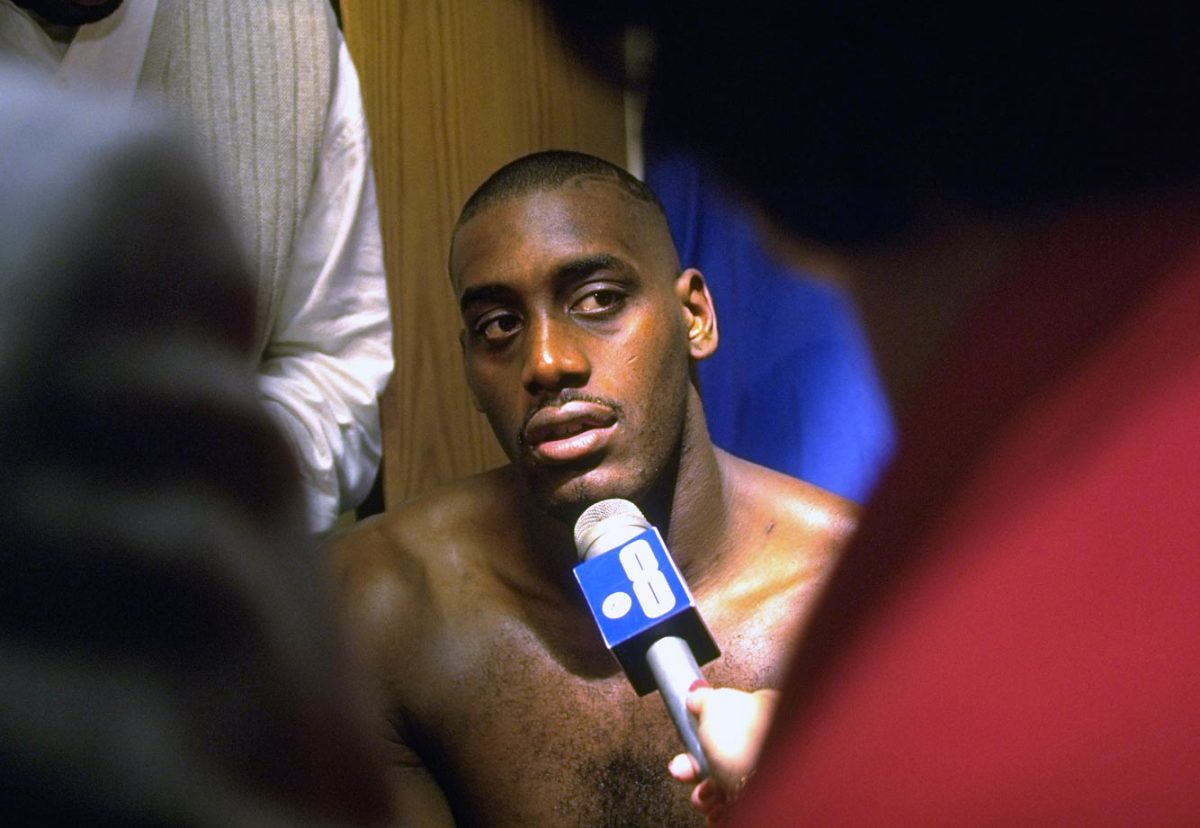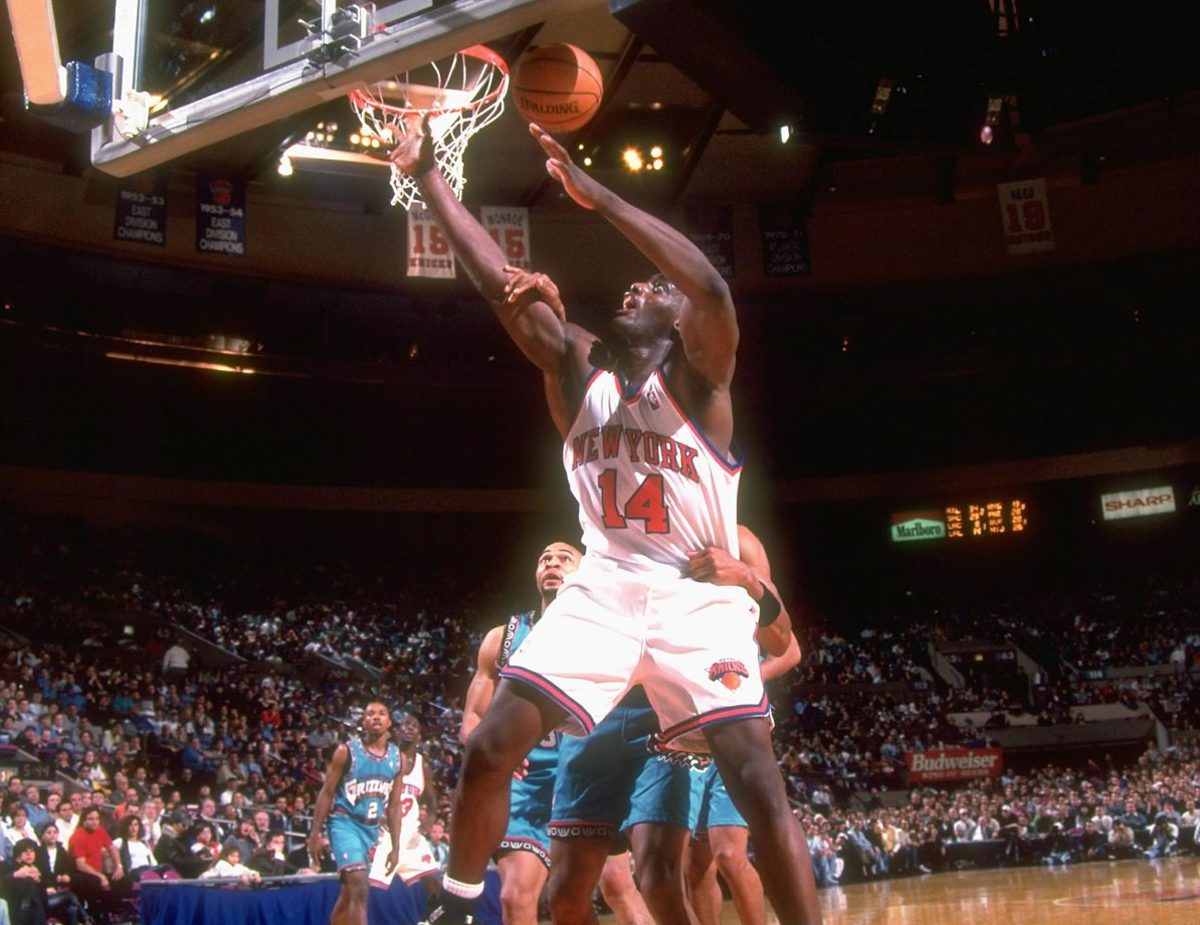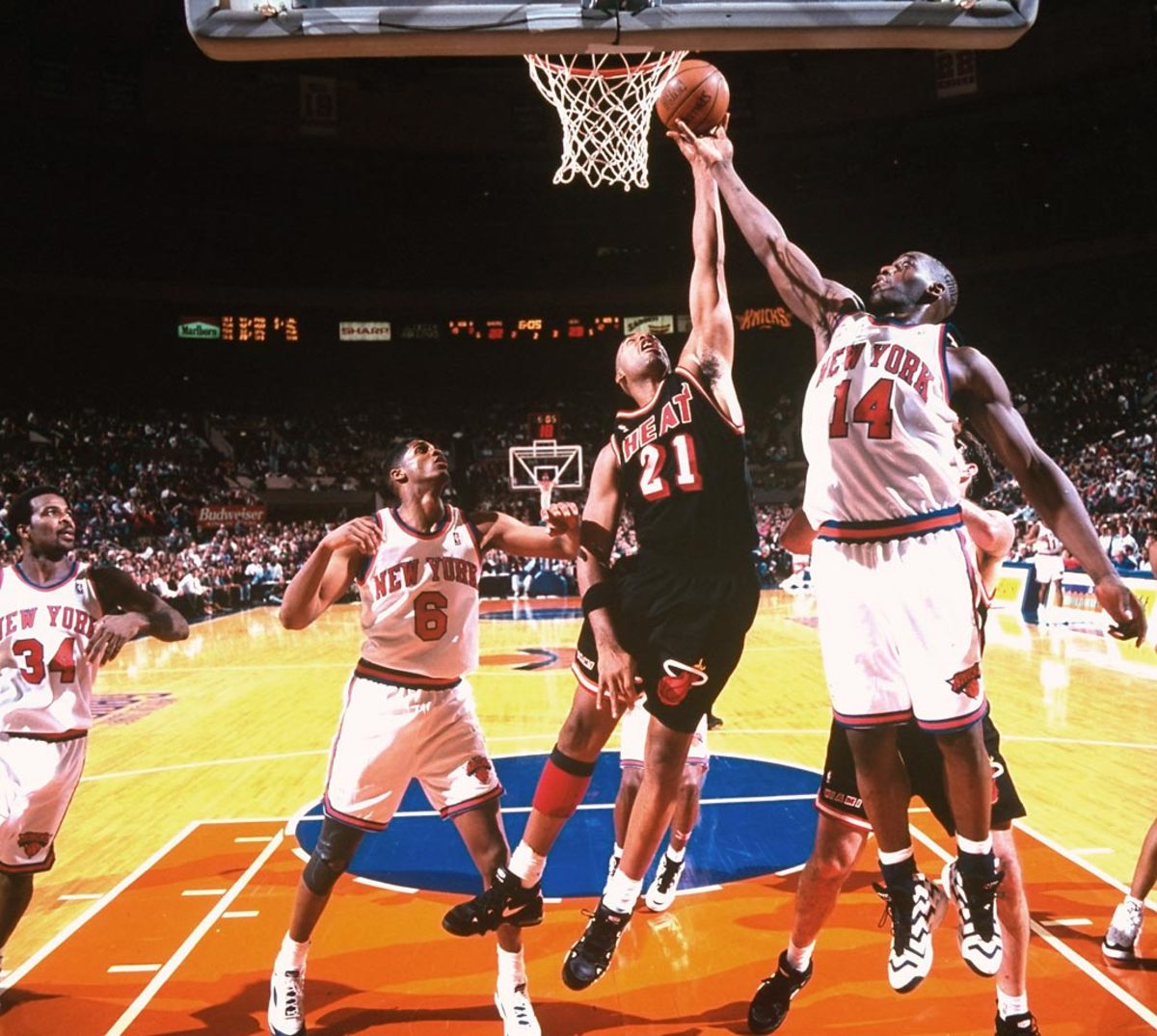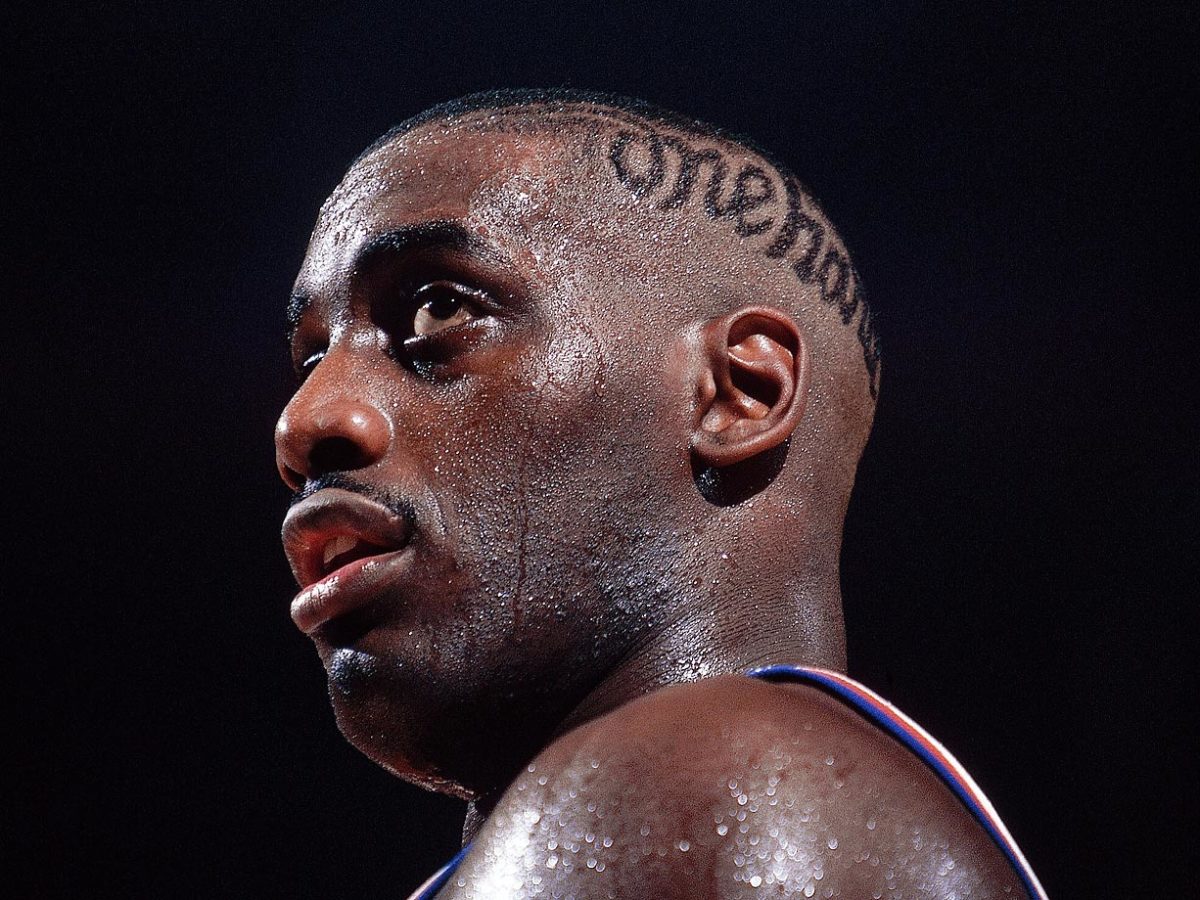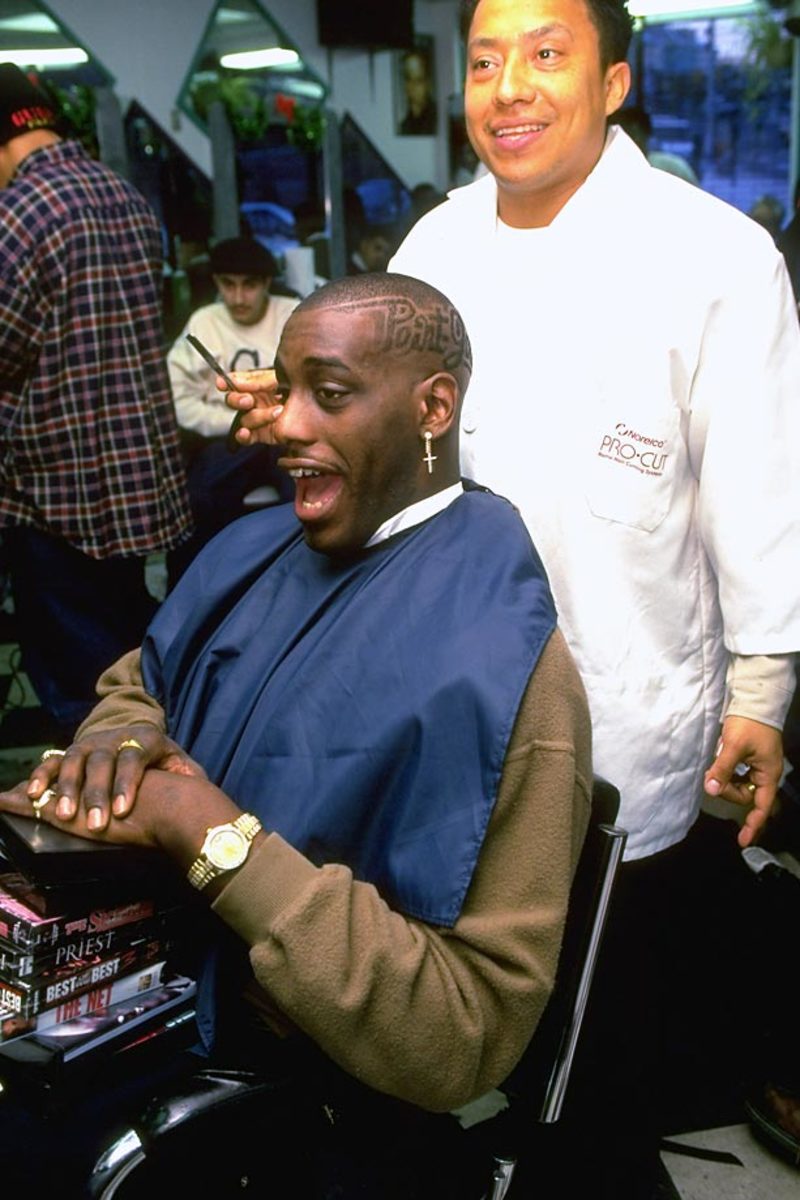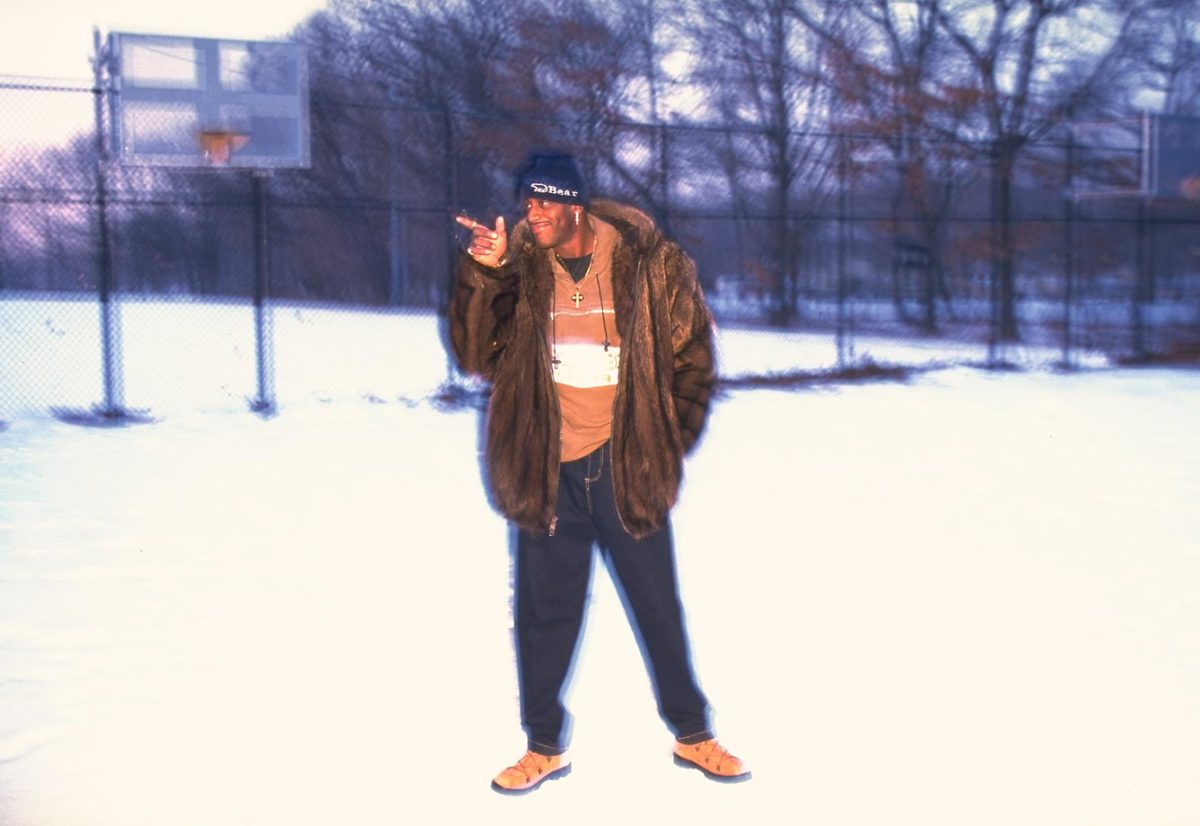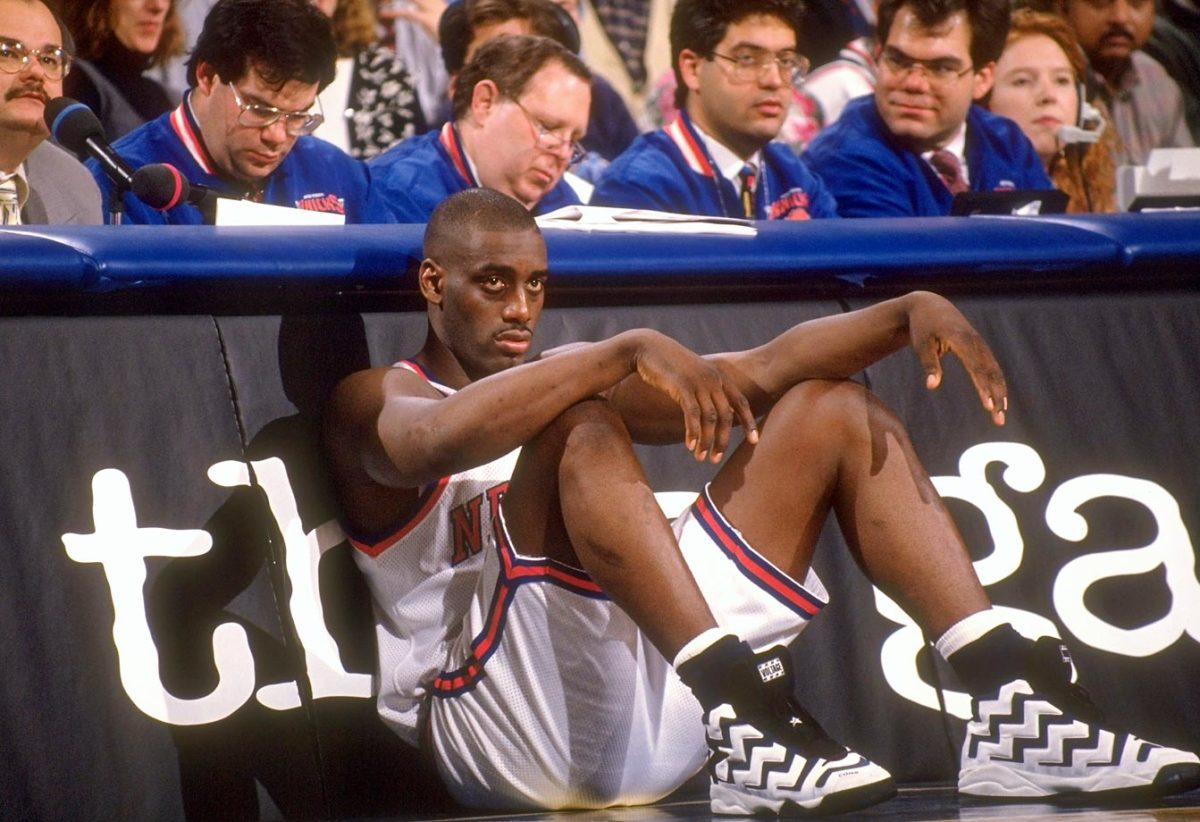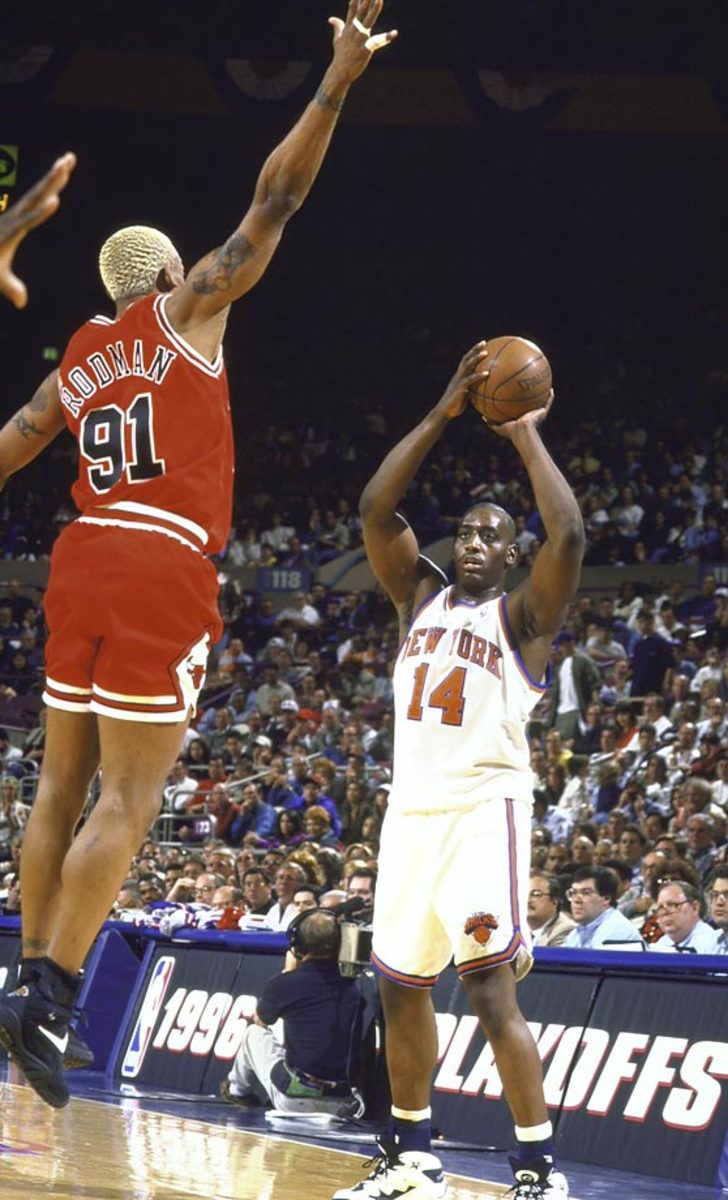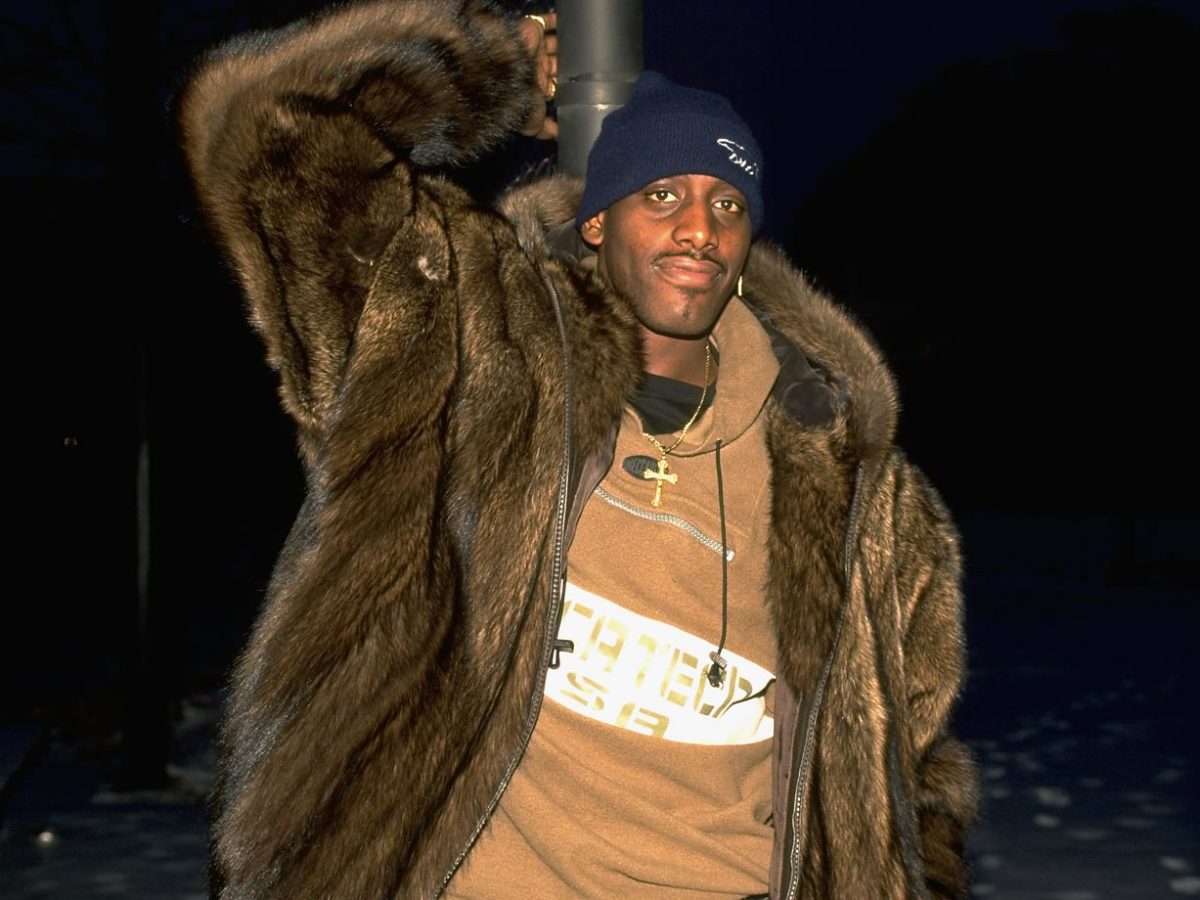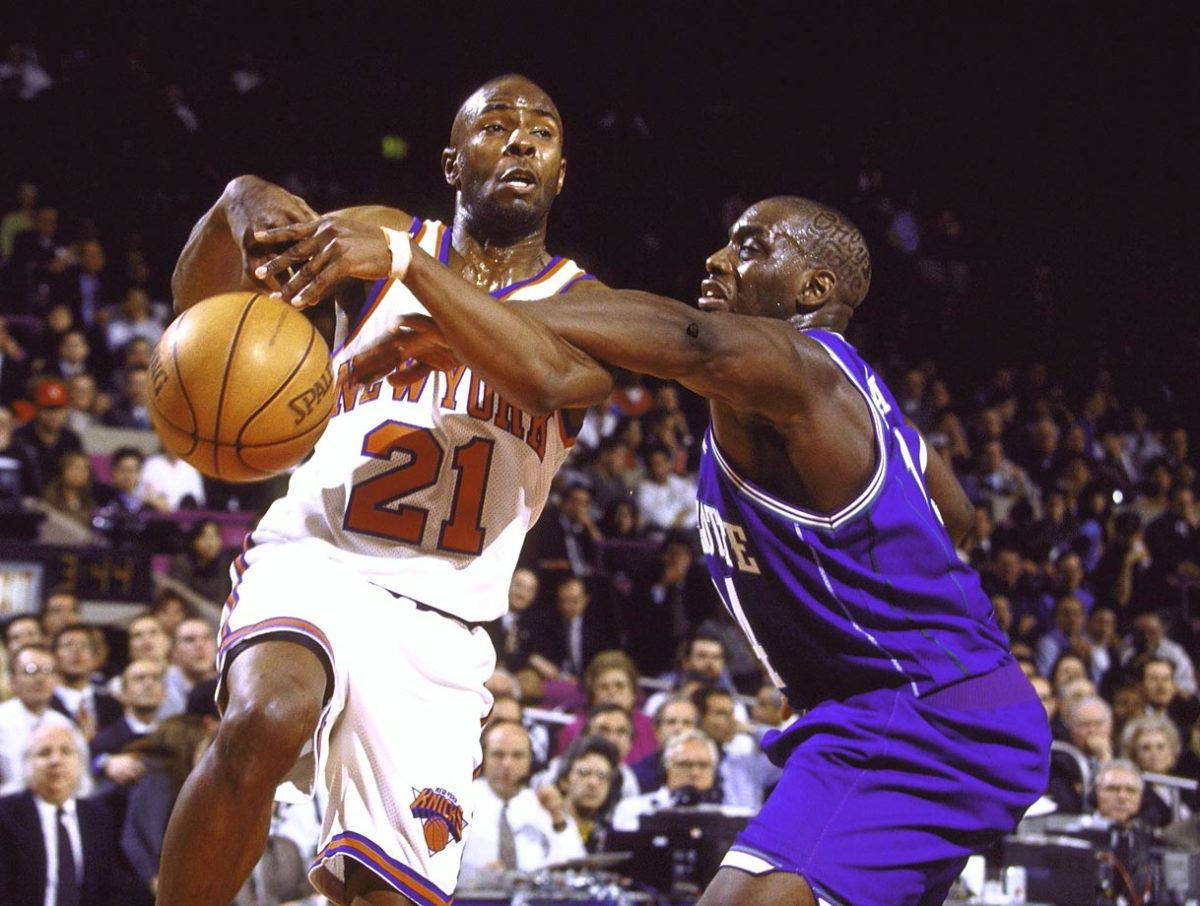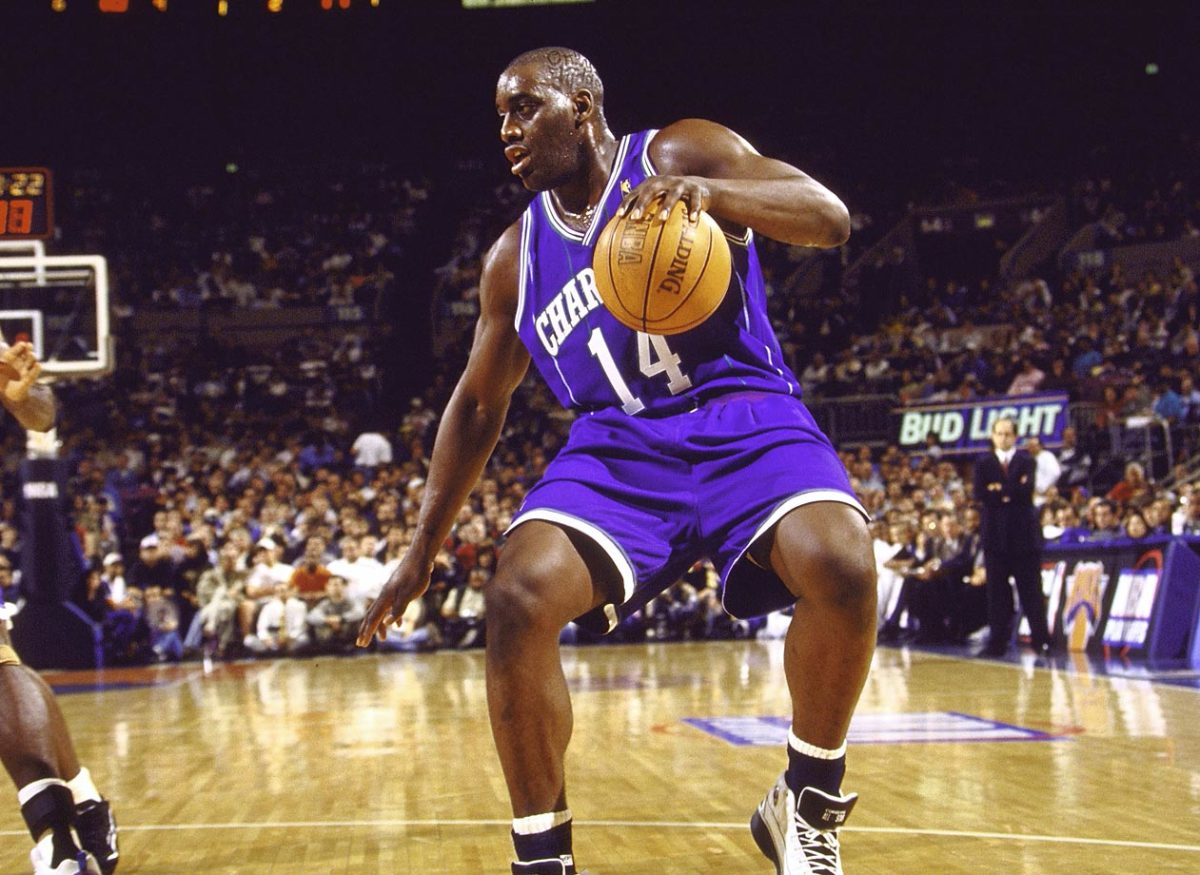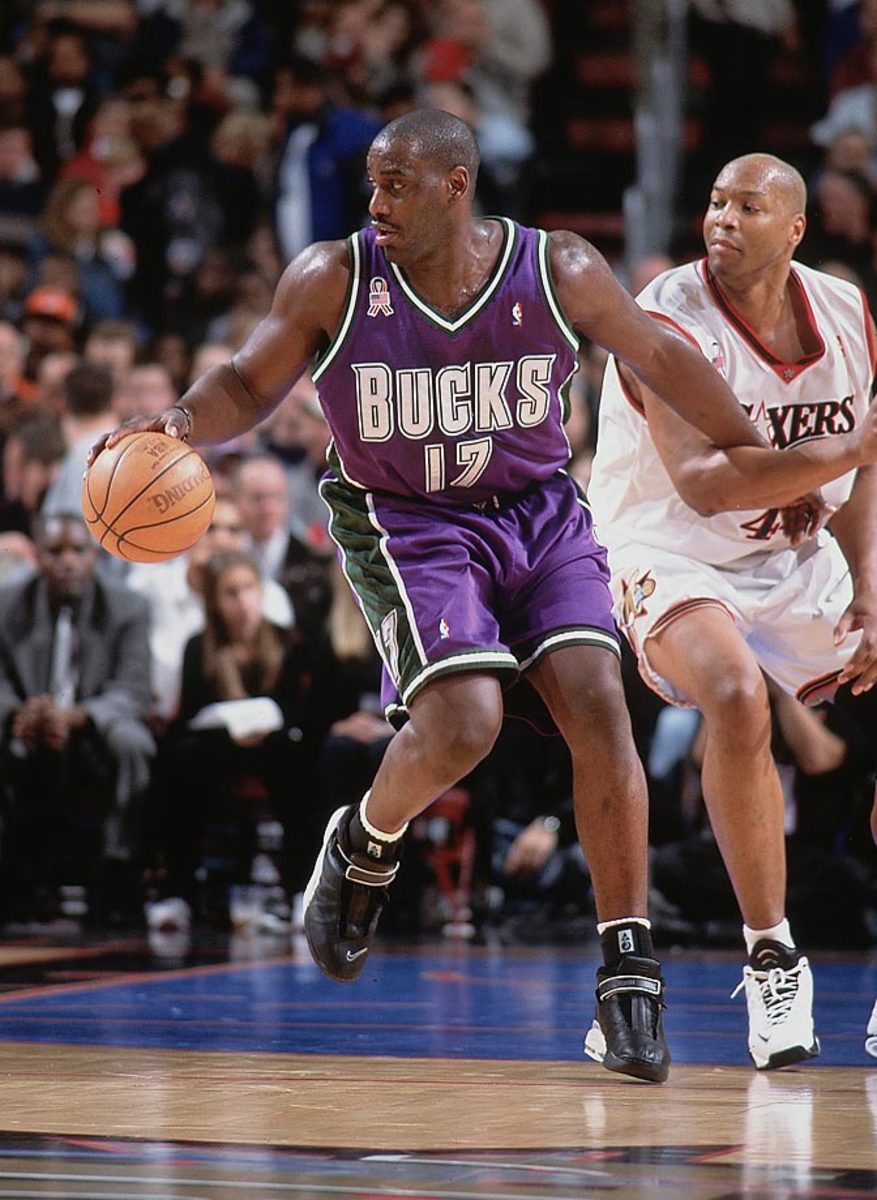Competitive edge, toughness made Anthony Mason one to remember

Anthony Mason had the charisma, the confidence, even the cockiness of a star, but he was never meant to be one. Mason was a bulldog, a scrapper, the perfect complement to the legends he played with and the ultimate irritant to the ones he played against. He made an All-Star team once, with the Miami Heat late in his career. But it’s easy to forget that, because at 6’7” and 250 pounds with that barrel of a chest, shoulders that looked like they had bowling balls packed inside, and eyes that seemed locked in a perpetual glare, he made his reputation as a New York tough guy, a working man.
That’s why Knicks fans, and anyone else who admired intense competitors who played with an edge, had so much love for Mason, who died Saturday at 48 after suffering heart attack earlier this month. “None fiercer,” said Knicks president Phil Jackson, who coached the Bulls against Mason and the Knicks in the blood wars of the ‘90s. “As tough as they come,” said Patrick Ewing, the Knicks center who teamed with Mason and Charles Oakley from 1991-96 to form the bruising front court of those sledgehammer Knicks teams.
Former NBA player Anthony Mason dies at 48
Mason wore that mantle just as proudly as he wore those words and designs that he often had carved into his hair, which became his trademark. He loved to tell you that playing in the NBA was not that big a deal, not to someone who had gotten there the hard way, going through European leagues, minor leagues and recreational leagues, as he had. Drafted out of Tennessee State in the third round by Portland in 1988, Mason was cut by the Blazers, played overseas and had brief stops with the Nets and Nuggets before finally finding a home with the Knicks in 1991. That humble history motivated him to play with an extra edge against players who he felt had traveled an easier path, like highly drafted rookies (“I’ll set a hard screen on a kid and tell him, ‘You’re not playing Wake Forest anymore,’” he said) and big-name veterans. “The so-called superstars,” Mason said. “I like to let them know I’m not impressed.” Mason once laid a hard foul on Michael Jordan on a drive to the basket. Jordan wasn’t pleased and they jawed at each other for a while. “I guess he thought I was just going to let him dunk on me like those guys in his commercials,” Mason said. “Go ‘Be like Mike’ somewhere else.”
Though he went on to play with Charlotte, Miami and Milwaukee, those five seasons with the Knicks defined Mason’s career. It was the perfect marriage of player, team and era, as Knicks coach Pat Riley took advantage of the loose rules governing physical contact, which allowed Mason to use his strength defensively to lock up players who were taller or quicker. In the 1994 Finals, he spent much of his time guarding Hakeem Olajuwon, the Houston Rockets' graceful center and the recently crowned MVP. It was like a boxer vs. a ballet dancer, and for the first few games at least, the boxer did surprisingly well, limiting Olajuwon, who had about a four-inch height advantage, to below 50 percent shooting by going full-contact on him, muscling him away from his favorite spots with well-placed forearms, elbows and knees. As Olajuwon walked to the team bus after Game 3, someone asked him why he was moving so gingerly. Olajuwon smiled and said, “Mason.”
NBA players mourn the loss of Anthony Mason on Twitter
It was during that series that Mason might have best summed up what he was all about. ''Have gun, will travel, baby,'' he said. “I'll take anybody they ask me to -- guard, forward, center – and try to lock 'em up. Olajuwon's a great player, but it doesn't matter who I guard. I've played in Turkey, Austria, Venezuela, the CBA, the USBL, West 4th Street Park. I had to travel a long way. It keeps you hungry. You know that you never want to go back.”
Although he had an "everyman" reputation, Mason could be as temperamental as any star. He wasn’t always easy to coach, and Riley suspended him for the last three games of the regular season in 1994 for insubordination and said he very nearly decided to go into the playoffs without him. Mason had complained publicly about his playing time, among other things. “There wasn’t any one thing or one specific comment,” Riley said at the time. “When it comes to these kinds of things, it’s usually cumulative.”
Mason occasionally ran into problems away from the court as well, the most serious of which was a statutory rape charge in 1998. He entered a plea agreement on the lesser charge of endangering the welfare of a child and served 200 hours of community service.
Auburn guard Antoine Mason to miss game after father's death
But most of his conflicts were limited to basketball, and they came from his supreme confidence in his own ability. Even after winning a Sixth Man of the Year award with the Knicks, he felt that he was underrated because he looked more like he should be tackling running backs than shooting jump shots. It’s true that he never got the credit he deserved for being surprisingly nimble around the basket, having a decent jumper from 15 feet and in, and being an excellent passer when double-teamed. He was proud of his toughness, but he wanted his skills to be recognized as well.
Maybe that’s the message he was trying to get across when he once had the word RESPECT carved into his hair, but it really wasn’t necessary. Because of the tenacity that earned him a place in the league and the ferocity with which he played once he got there, if there was the one thing Mason never had to ask for from teammates or opponents, it was respect. His favorite design, though, was the one that read “In God’s hands,” because he felt it summed up his career, his fate. For those who loved Mason, it is where they no doubt believe he is right now.
Classic Shots of Anthony Mason
